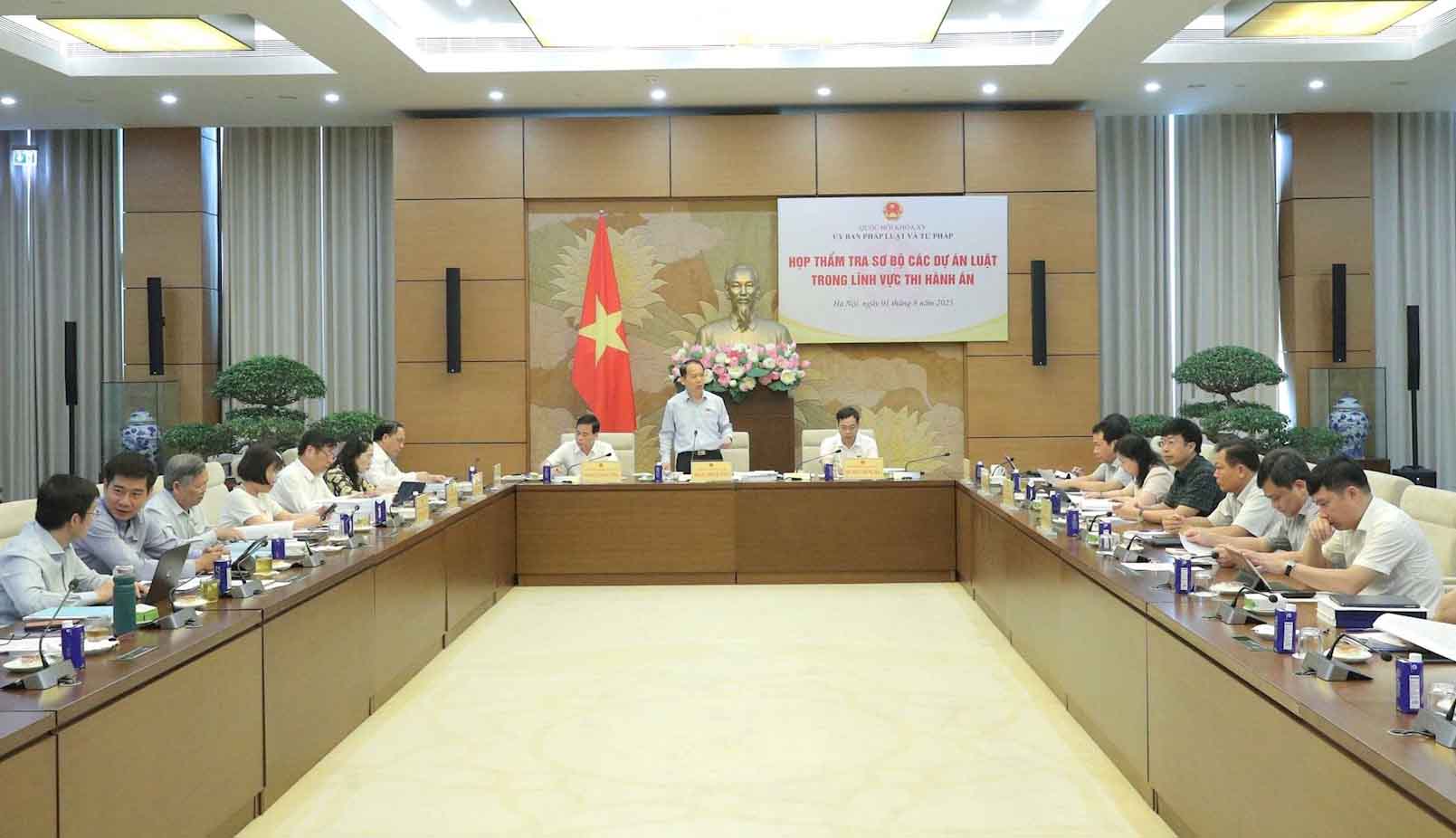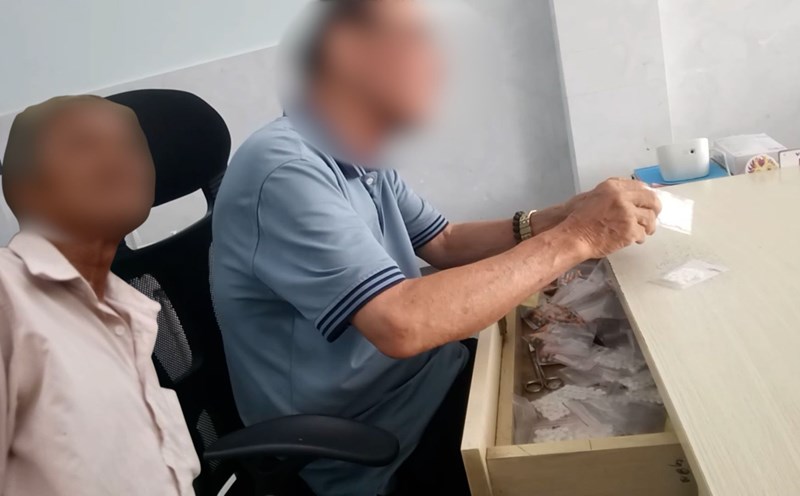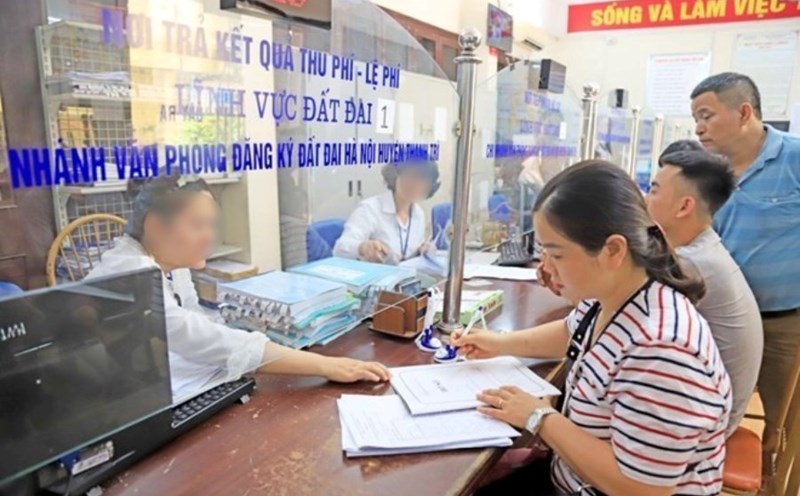On August 1, in Hanoi, the Standing Committee of the Law and Justice Committee met to review 2 draft laws in the field of execution of judgments, including: draft Law on Executive Committee for temporary detention, temporary detention and ban on leaving the place of residence; draft Law on Executive Committee of criminal judgments (amended).
Chairman of the Law and Justice Committee Hoang Thanh Tung said that these are the draft laws that will be submitted to the National Assembly for consideration and approval at the upcoming 10th Session.
According to the Submission, the draft Law on the Implementation of Temporary Detention, Temporary Imprisonment and Prohibition from Leaving the Place of Residence is adjusted to the organizational system and model of the management agency, temporary detention, temporary detention, and prohibition from leaving the place of residence; detention management regime.
In addition, the regime for those being detained, those being detained, those sentenced to death who are being detained; those being detained, those being detained who are under 18 years old, pregnant women or women raising children under 36 months old.
Executing the decision to prohibit leaving the place of residence; complaints and denunciations in management, temporary detention, temporary detention, and movement from the place of residence; responsibilities for management, temporary detention, temporary detention, and movement from the place of residence.
The draft Law consists of 12 chapters (including 1 new chapter), 73 articles, of which the content of 38 articles is amended and supplemented, 11 new articles are built, 12 articles are abolished, and 24 articles are retained.
Meanwhile, the draft Law on Enforcement of Criminal Judgments (amended) basically retains the same scope of regulation compared to the Law on Enforcement of Criminal Judgments 2019.
Accordingly, amending 124/207 articles of the 2019 Law on Enforcement of Criminal Judgments, adding 10 articles, removing 22 articles; these amended and supplemented regulations aim to ensure the consistency and unity of the legal system.
Resolve the existing problems and difficulties in practice and meet the requirements of criminal enforcement in the coming time.
The draft Law on Enforcement of Criminal Judgments (amended) consists of 15 chapters with 172 articles, perfecting regulations on the tasks and powers of agencies and units in the enforcement of criminal judgments to further improve the effectiveness of criminal enforcement management, education, and reform to overcome difficulties, inadequacies, and meet the requirements of criminal enforcement in the new situation.
At the same time, perfecting regulations on the implementation of rights and obligations of those serving criminal sentences, the regime for managing those serving criminal sentences, regulations on the implementation of the regime for detention of prisoners...

The Standing Committee of the Law and Justice Committee approved the necessity of promulgating the Law on the Exploitation of Temporary Detention, Temporary Detention and Prohibition from Leaving the Place of Residence and the Law on the Exploitation of Criminal Judgments (amended).
Regarding ensuring the rights of people being detained and temporarily detained in the draft Law on the implementation of temporary detention, temporary detention and prohibition from leaving their place of residence, the Standing Committee of the Law and Justice Committee proposed that the drafting agency continue to revise and clarify a number of contents on the rights of people being detained and temporarily detained, and add subjects to the concept of personal identity to comply with the provisions of the current Law.
For the draft Law on Enforcement of Criminal Judgments (amended), the Standing Committee of the Law and Justice Committee proposed to consider not adding the content of "deferring or temporarily suspending the execution of prison sentences" to the scope of regulation because these are specific procedures within the scope of "executing judgments and decisions on prison sentences".











